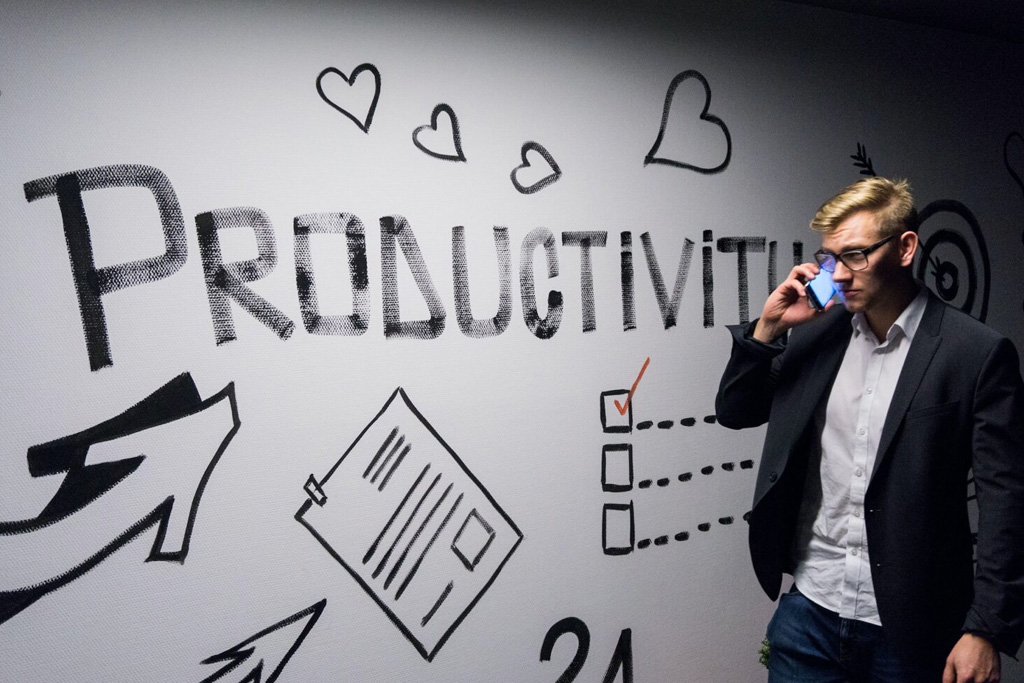In today’s post, we will take an in-depth look at the complex labyrinth of human behaviour. We’ll be shattering some illusions, and perhaps even a few delusions, about what it truly means to be addicted. Additionally, we will also help you in understanding the benefits of
We’re diving deep into the Seven Addictions—of which drugs and alcohol are only two—and uncovering how they weave through the very fabric of our day-to-day lives. We will also be looking at what we call the Four Afflictions and how they can, if unheeded, lead to the Seven Addictions.
Popular opinion has it that an addict is someone who makes a choice to regularly use drugs, and does not want to stop.
Thankfully, this damaging and—quite frankly—wrong perception of addiction is starting to change.
Addiction is, in fact, any behaviour you repeatedly engage in to make yourself feel better in the moment, even though it has negative consequences.
The Seven Addictions
To help you gain a better understanding of how we can become addicted to certain behavioural patterns, let us look at the Seven Addictions.
Food

On a more basic level, sometimes we eat not because we’re hungry, but because we’re angry, anxious, depressed, or feeling guilty, and eating food gives us comfort.
Then there are the eating disorders, like bulimia, which can become an addiction to the cycle of relief (eating) and guilt (purging).
People with anorexia, for example, will often try to implement control in their emotional lives by controlling strictly how much they eat.
In both instances, what begins as a trauma response to help emotional self-regulation, then unfolds into a behavioural addiction.
Money

Has there ever been a time when you have used money to make yourself feel better? Maybe you are drawn to gambling. Or perhaps you shop every time you are anxious, depressed, or feeling low self-worth?
Or it may be the case that you feel worthless until you have achieved a certain amount of financial success, only to discover that no amount of money is ever enough?
People

“What?!” you exclaim. “Addicted to people?!” Indeed. Healthy relationships are great, but constantly relying on someone for validation is another story.
Perhaps decisions seem impossible without always consulting that one person. They’re also your go-to person for comfort during gloomy moods. This is what is called “co-dependency.”
It could also be the case that you are in a position where you seek fame and adulation as a way of increasing your self-worth, as is the case with the increase in “celebrity” culture over the past twenty years.
Furthermore, an addiction to people can also arise through a fixation on sex, especially if you are constantly seeking sexual escapades for comfort, or tethering self-worth to physical allure.
Technology

From the internet, down to our phones, tablets, and PCs; down through social media platforms, many of us become addicted to technology without even knowing it.
Do you find yourself, for example, pining after that extra “like”, or defining your idea of success as having a particular follower count? Do you reach for your phone first thing in the morning for compulsive scrolling through Instagram, Facebook, Tik-Tok or any others? Do these activities take valuable time away from engaging with people in real time?
By way of cross-over addictions, engaging in online gambling (money) or using dating apps and pornography (people) can indicate a crossover addiction to money, people and technology.
Work/Success

Many of us predicate our identities on what we do for a living. As a matter of fact, many of us will seek validation from our success in our particular field, and this can be highly addictive.
Many people suffering from workaholism simply cannot stop working; a compulsion that takes time away from self-care, as well as their families and friends, often resulting in cycles of burnout and exhaustion. Additionally, it is not uncommon for people in high-stress jobs to self-medicate with drugs or alcohol.
Drugs

With drugs, we become addicted to seeking external substances, such as prescription drugs, or illegal drugs. Why do we do this? We attempt to feel better, to escape our current emotional state, to self-regulate our emotions. Renowned physician and author Gabor Maté pertinently points out, when defining addiction “the question is never ‘why the addiction,’ but ‘why the pain?’”
Alcohol

Alcohol has been our society’s “accepted” pressure release valve for thousands of years. It’s so celebrated and accepted that if you’ve ever arrived at a party and told your friends you weren’t drinking, many of them might have asked, “Why, are you sick?” That’s how normalized it has become, despite all the lives it upends and plunges into dysfunction.
Most people https still deny being addicts, even when presented with this new, more realistic perspective on addiction, categorized into the seven categories outlined above.
And that’s okay. It’s natural to resist being labelled as an addict when the negative stigma of that definition comes from society’s outdated perception that addiction is a conscious choice to be nothing but a “loser” who “enjoys” failing at life.
But how do addictions develop in the first place?
The 4 Afflictions
Now that we have delved into the concept of addiction beyond drugs and alcohol, let’s explore another angle of this complex issue.
This change in perspective will help us to better understand what drives us towards these behaviours in the first place.
It’s essential to recognize that addictive behaviours don’t exist in a vacuum; they are often a response to underlying emotional or psychological stressors.
You see, we usually arrive at any one of the Seven Addictions after we have been sufficiently triggered and stressed over time by what can be called the Four Afflictions.
And these 4 afflictions, though they are not addictions as such, will eventually leave us in such unpleasant emotional states, that over time, we may end up reaching for one of the Seven Addictions to feel better.
Negative Thinking

Negative thinking within the framework of a behavioral addiction refers to a pattern of pessimistic, self-defeating, or catastrophic thoughts that can either contribute to the development of an addiction or perpetuate an existing one.
Negative thinking can act as a catalyst for behavioral addiction. People might engage in certain behaviors to cope with their negative thoughts. For example, someone with low self-esteem (negative thinking about oneself) might excessively use social media for validation, which can evolve into an addiction.
Once the behavioral addiction is established, negative thinking can further reinforce it. For example, if someone is addicted to gambling, they might think, “I’m already a loser, so there’s nothing to lose,” which perpetuates the addiction.
Self-Doubt

This is essentially negative thinking directed at yourself and is one of the most destructive of the four afflictions.
Self-doubt refers to the lack of confidence in one’s abilities, decisions, or worthiness, which can play a significant role in both the development and maintenance of addictive behaviours.
Self-doubt alone often leads many of us to the Seven Addiction, and also to the other three afflictions, such as procrastination.
Procrastination

Procrastination can often be a direct consequence born from self-doubt and is a self-reinforcing, vicious cycle. Have you ever procrastinated on a task, distracting yourself from the stress of wondering whether you were going to do a good job at it? Did you distract yourself with other things until it was too late?
Resentment

Resentment is essentially created by something we perceive was done to us by another person. We stew over how unfair the actions of another are, especially towards us. We feel rightful in our anger. We feed the resentment. But…while we think we are directing it at another person for their actions, we are actually only harming ourselves.
Now, you can see how these “afflictions” work, and how they reinforce each other. While some of you may admit that yes, at times you give in to negative thinking, or that you harbour resentment for someone longer than you’d like to, you probably don’t think you need to ask for help, or worry too much if about it.
Ibogaine & Reconnection

The fact is that, over time, these Four Afflictions, and our sense of isolation can evolve into various prevalent mental health issues we see today, such as depression, anhedonia, panic disorders, Post Traumatic Stress Disorder, executive burnout, obsessive-compulsive disorders, and, more gravely, suicide. In light of this, ibogaine treatment for various addictions and mental health issues offers a glimmer of hope.
But what does ibogaine do, you may ask? Ibogaine opens a portal to your subconscious, triggering dream-like visions from your own life, and allowing suppressed memories to re-emerge. This is a critical component of ibogaine treatment for various addictions, as it provides an avenue to confront underlying issues.
This allows people an objective, clear view into what areas of their emotional lives need attention, and often points them in the right direction so that they can regain trust in themselves, and begin to address these issues one by one, as they integrate the experience back into their daily lives.
Additionally, choosing to undergo an ibogaine treatment for various addictions resets the brain’s reward system, namely neurotransmitters like dopamine and serotonin.
This essential and unique aspect of using an ibogaine treatment for various behavioural addictions is crucial, as these chemicals are always imbalanced and at suboptimal levels because of the strain addictive behaviours and mental health issues place on the brain.
In a time when finding the real you amid all the noise is an essential part of healing, choosing to undergo an ibogaine treatment for various addictions can facilitate a reconnection to your authentic self, stripping away the layers of who you believe you are.
The benefits of using an ibogaine treatment for various addictions extend to any individual grappling with unresolved or unprocessed trauma, not just people grappling with drug or alcohol addiction, since some form of trauma is always at the root of behavioural addictions.
Ancestral medicines such as psylocibin, ayahuasca, 5-MeO-DMT, San Pedro, peyote, as well as synthetic psychedelics like ketamine, MDMA or LSD are once again proving incredible tools in the treatment of mental health issues. However, it is important not to overlook ibogaine treatment for various addictions as a potent therapeutic option.
However, despite the psychedelic therapy revival of the last 30 years, ibogaine has largely been left out of the mental health conversation, because of its primary association with drug addiction.
As we now know—addiction and addictive behaviours aren’t only about drugs.
Here at Tabula Rasa Retreat, we have seen people who had given up coping with their mental health issues, behavioural addictions, PTSD, or depression, regain their joy for living and reconnect with themselves after as little as one ibogaine treatment.
That said, ibogaine is not a magic potion.
It will not solve your problems for you. But it will show you the way and re-establish your trust in your own bodily and mental intelligence, and capacity for self-healing.
Imagine a world where those that drive our economies, industries and politics have become more aware, more connected with nature and those around us…more deeply connected to themselves. Where their wounded egos are not running the show on autopilot.
This is the trickle-down effect of using a plant medicine like Ibogaine to heal ourselves. It’s that, in healing ourselves, we heal others. We spread the word, as we are doing now.
We become ambassadors, and we show people there is another way.
And this is precisely why our ibogaine treatment centre, Tabula Rasa Retreat was born.
Tabula Rasa Retreat has rapidly positioned itself as Europe’s premier ibogaine clinic. Located in the Alentejan region of Portugal, its clientele is mainly from the United Kingdom, Northern Europe, UAE and the USA. All treatments undergo medical vetting and are medically monitored and supervised. Our medical staff are ACLS trained. To support ibogaine treatments, expect holistic therapies such as breathwork, bodywork, massage, meditation, kundalini yoga, reiki, gong baths, drumming circles, equine assisted therapy, personal training and nutrition advice. This is further supported by 1:1 counselling and group therapy by our in-house counsellors.

Comments are closed